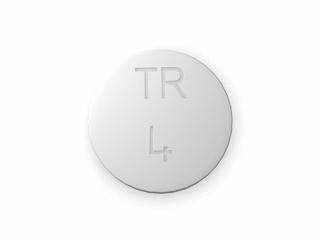Ventolin Inhalers over the counter
Selective agonist of β2-adrenergic receptors. In therapeutic doses, it acts on β2-adrenergic receptors of the smooth muscles of the bronchi and has a short-term (from 4 to 6 hours) bronchodilator effect, preventing or stopping bronchospasm, and reducing resistance in the airways. Aerosol for inhalation is dosed in the form of a suspension of white or almost white color. Aluminum inhalers with a plastic dispenser with a protective cap.
Ventolin inhaler for asthma price
- 1 inhaler – $25.99 per inhaler – $25.99 Add to cart
- 3 inhalers – $24.00 per inhaler – $71.99 Add to cart
- 6 inhalers – $20.00 per inhaler – $119.99 Add to cart
The patient should be instructed on the correct use of the Ventolin inhaler. Bronchodilators should not be the sole or main component of the treatment of unstable or severe asthma. If the action of the usual dose of Ventolin becomes less effective or less prolonged (the effect of the drug persists for at least 3 hours), the patient should consult a doctor.
An increased need for the use of short-acting inhaled beta2-agonists to control the symptoms of bronchial asthma indicates an exacerbation of the disease. In such cases, the treatment plan should be reviewed. Sudden and progressive worsening of the course of bronchial asthma can be life-threatening, therefore, in such situations, it is urgent to address the issue of increasing the dose of corticosteroids.
Therapy with beta2-adrenergic agonists, especially when administered parenterally or by a nebulizer, can lead to hypokalemia. Particular caution is recommended in the treatment of severe attacks of bronchial asthma, since in these cases hypokalemia may increase as a result of the simultaneous use of xanthine derivatives, corticosteroids, diuretics, and also due to hypoxia. It is necessary to control the level of potassium in the blood serum.
With the simultaneous use of the drug with an agent for inhalation anesthesia, with levodopa, the risk of developing severe ventricular arrhythmias increases. Simultaneous use of anticholinergics may increase intraocular pressure. Diuretics and corticosteroids enhance the hypokalemic effect of salbutamol.
After inhalation, 10-20% of the dose of salbutamol reaches the lower respiratory tract. The rest of the dose remains in the inhaler or is deposited in the oropharynx and then swallowed. The fraction deposited in the respiratory tract is absorbed into the tissues of the lungs and blood.
The swallowed part of the inhalation dose is absorbed from the gastrointestinal tract and is extensively metabolized via the liver. The binding of salbutamol to plasma proteins is 10%.
Ventolin сontraindications
- management of preterm labor;
- threatening abortion;
- children’s age up to 2 years;
- Hypersensitivity to the components of the drug.
The drug should be used with caution in the presence of a history of tachyarrhythmias, myocarditis, heart defects, aortic stenosis, coronary heart disease, severe chronic heart failure, arterial hypertension, thyrotoxicosis, pheochromocytoma, decompensated diabetes mellitus, glaucoma, epileptic seizures, renal or hepatic failure; simultaneously with non-selective beta-blockers, during pregnancy, during lactation
Overdose
often – hypokalemia, lowering blood pressure, tachycardia, muscle tremor, nausea, vomiting; less often – agitation, hyperglycemia, respiratory alkalosis, hypoxemia, headache; rarely – hallucinations, convulsions, tachyarrhythmia, ventricular flutter, expansion of peripheral vessels.
Ventolin side effects
- Allergic reactions: very rarely – hypersensitivity reactions, including urticaria, angioedema, bronchospasm, arterial hypotension, and collapse.
- Tremor, headache; very rarely – hyperactivity.
- Tachycardia; sometimes – a strong heartbeat (pulsation, palpitations); rarely – expansion of peripheral vessels; very rarely – arrhythmias, including atrial fibrillation, supraventricular tachycardia, and extrasystole.
- Very rarely – paradoxical bronchospasm.
- Sometimes – irritation of the mucous membrane of the oral cavity and pharynx.






